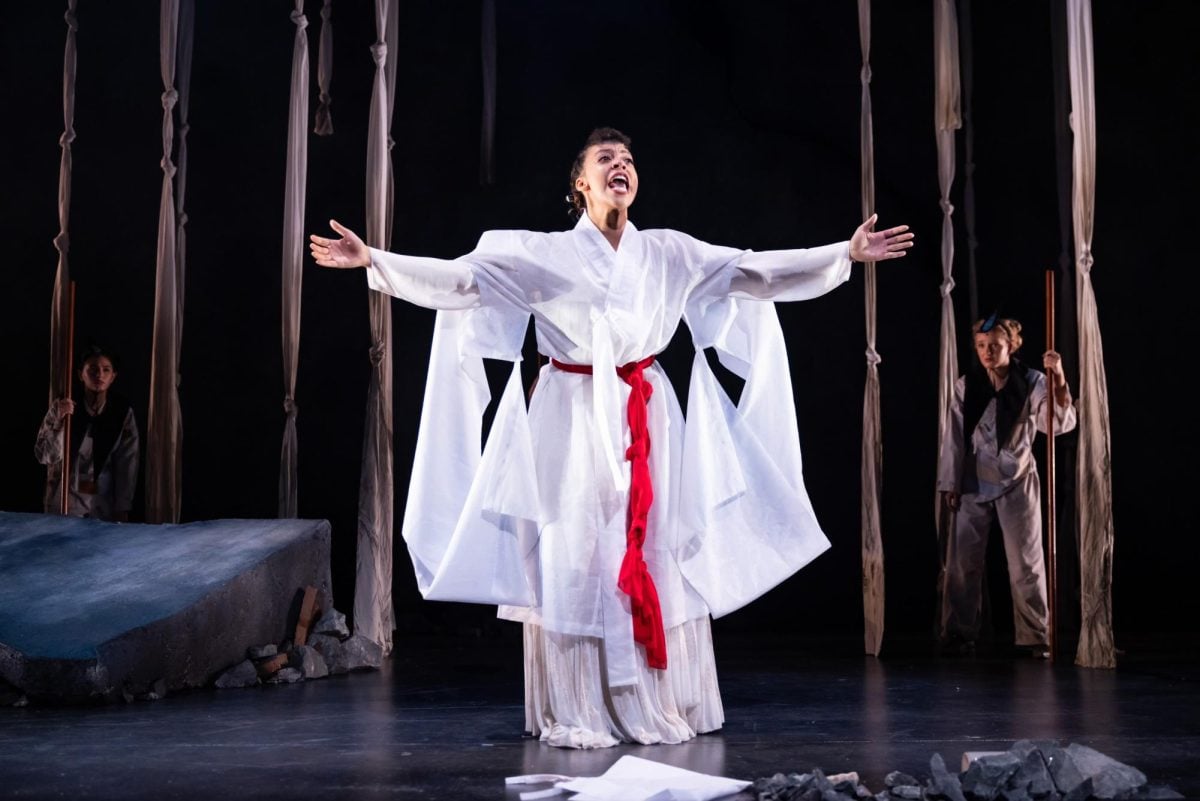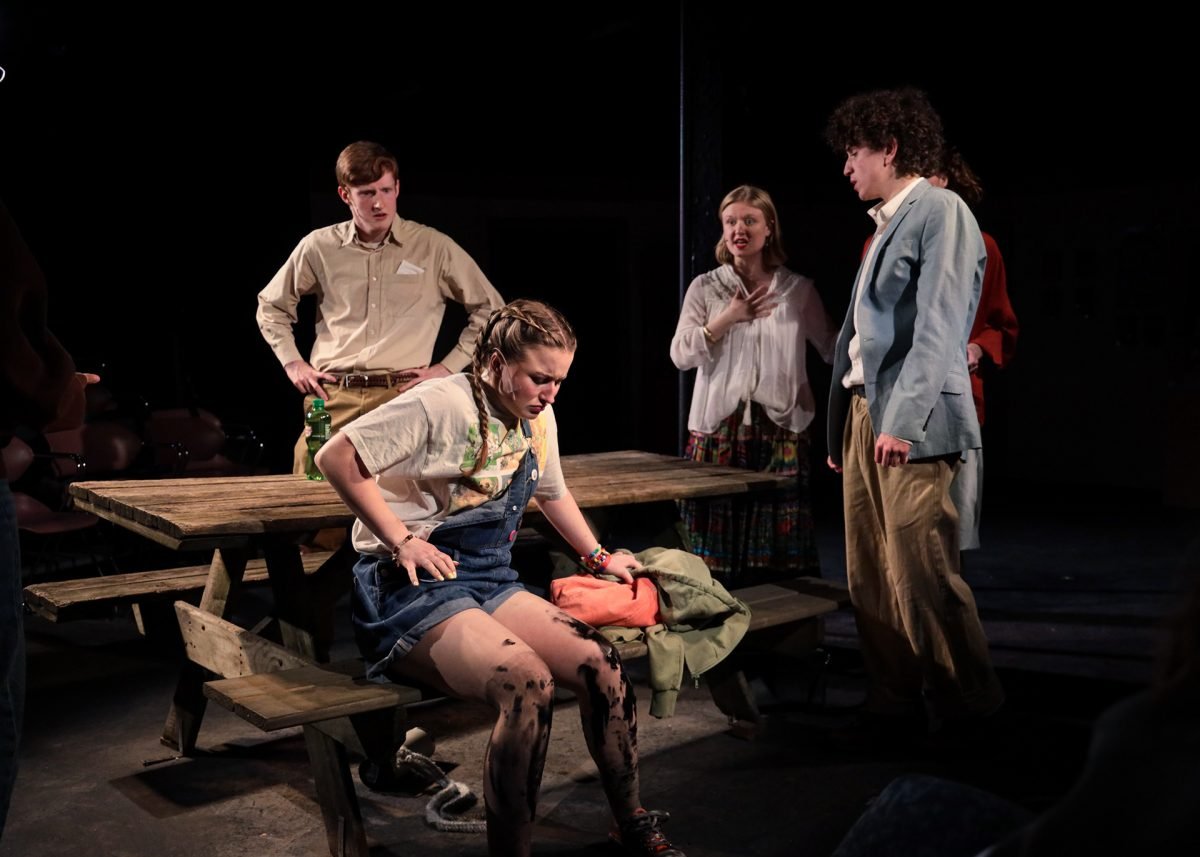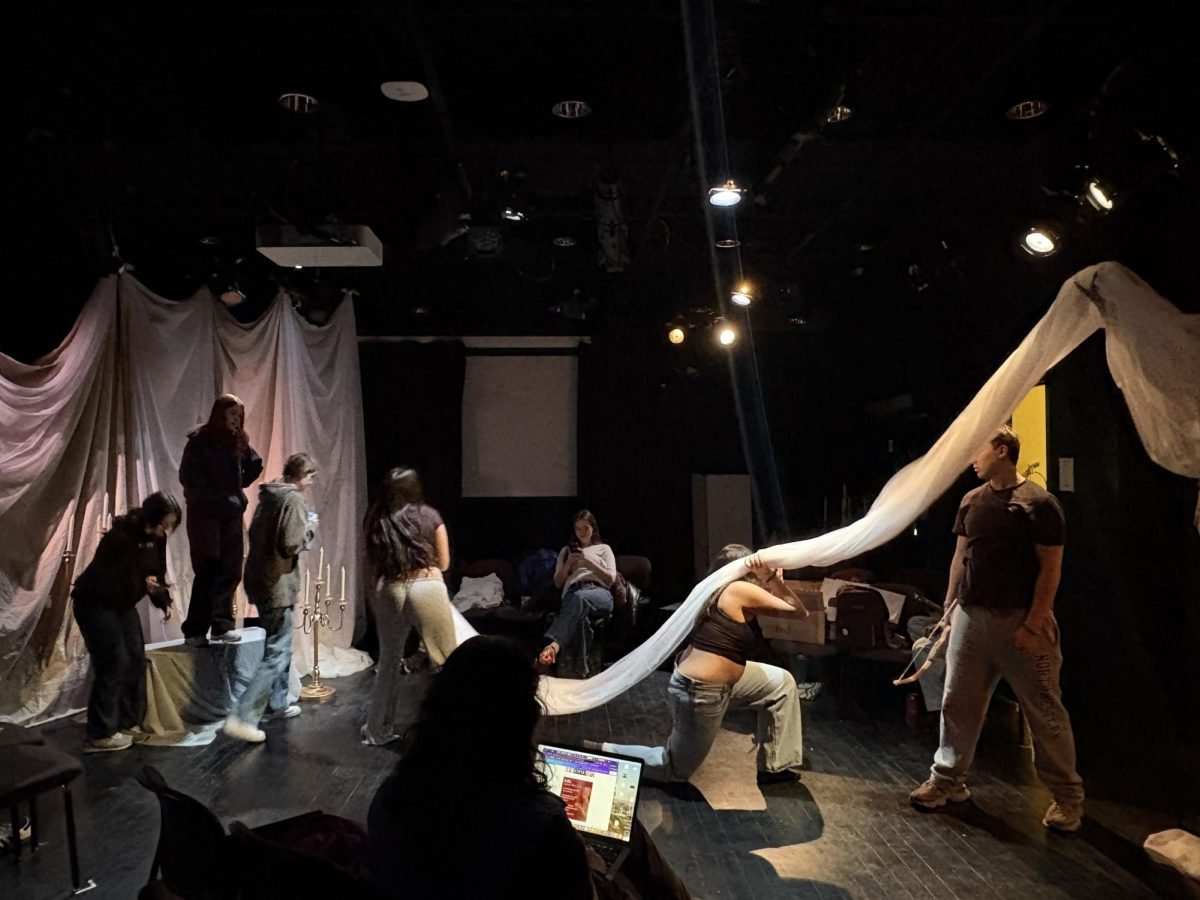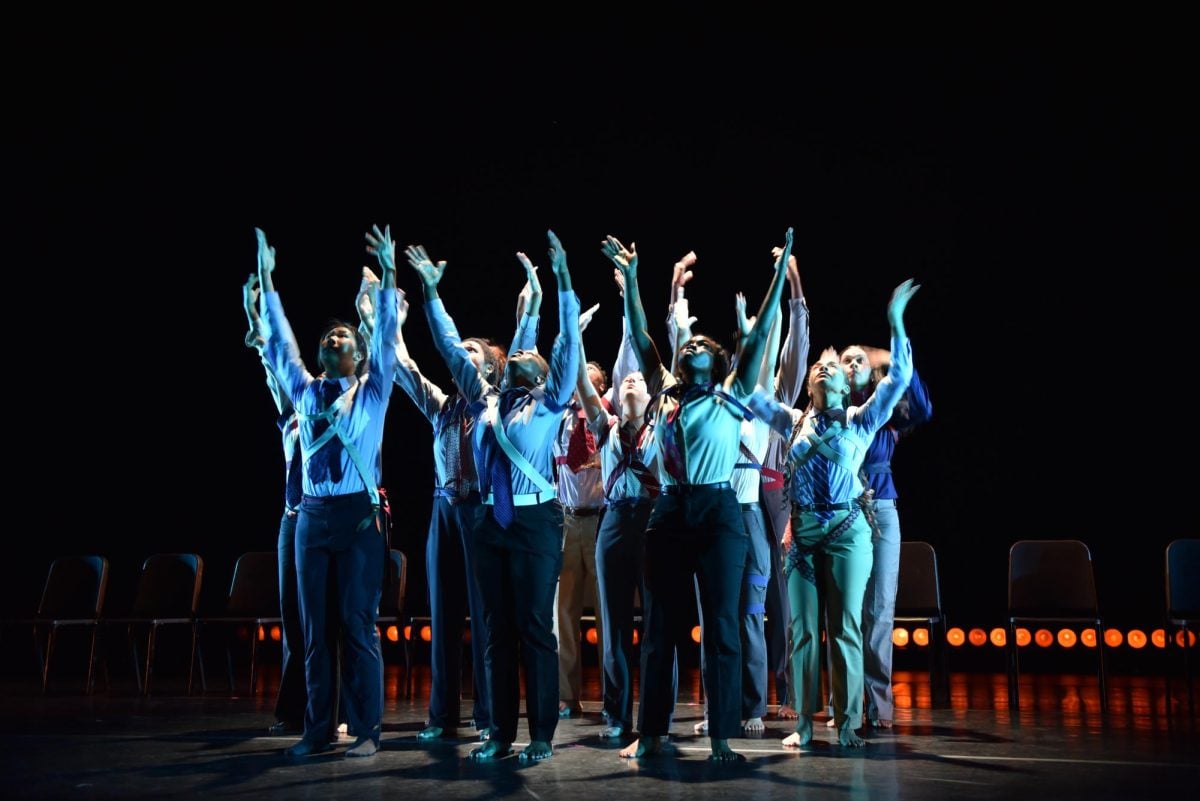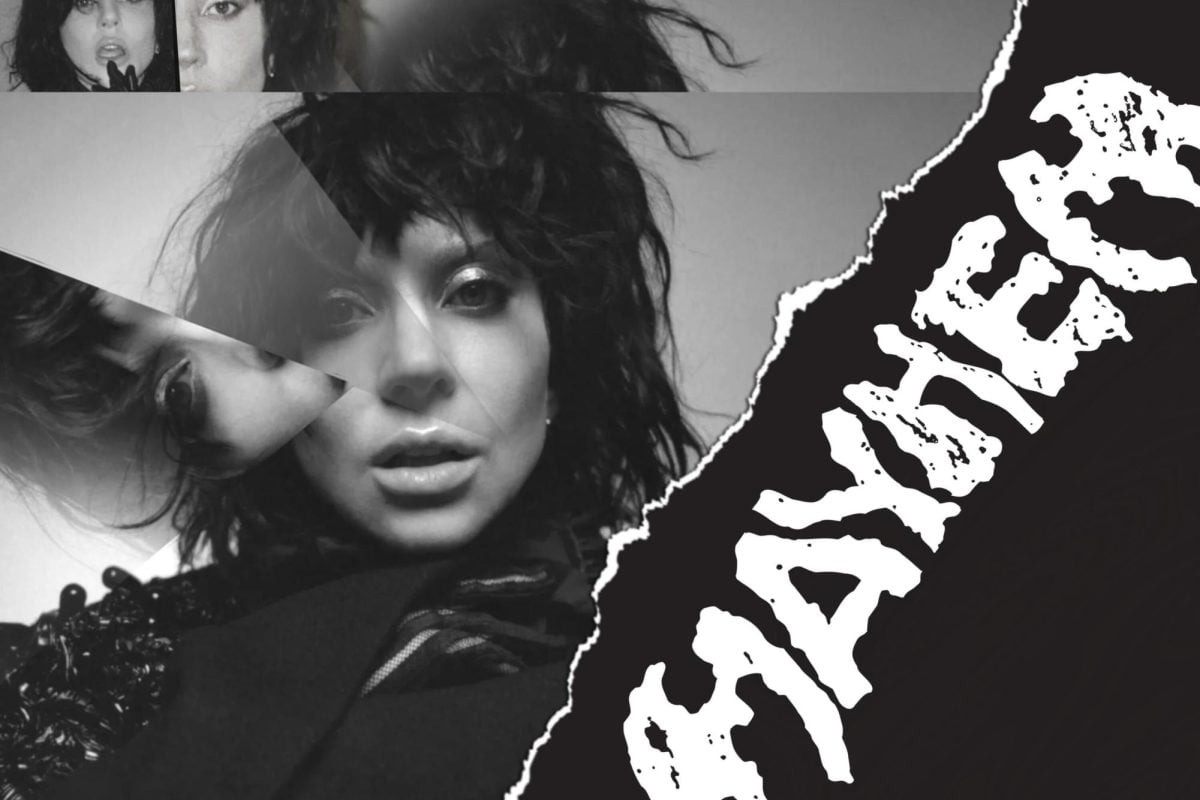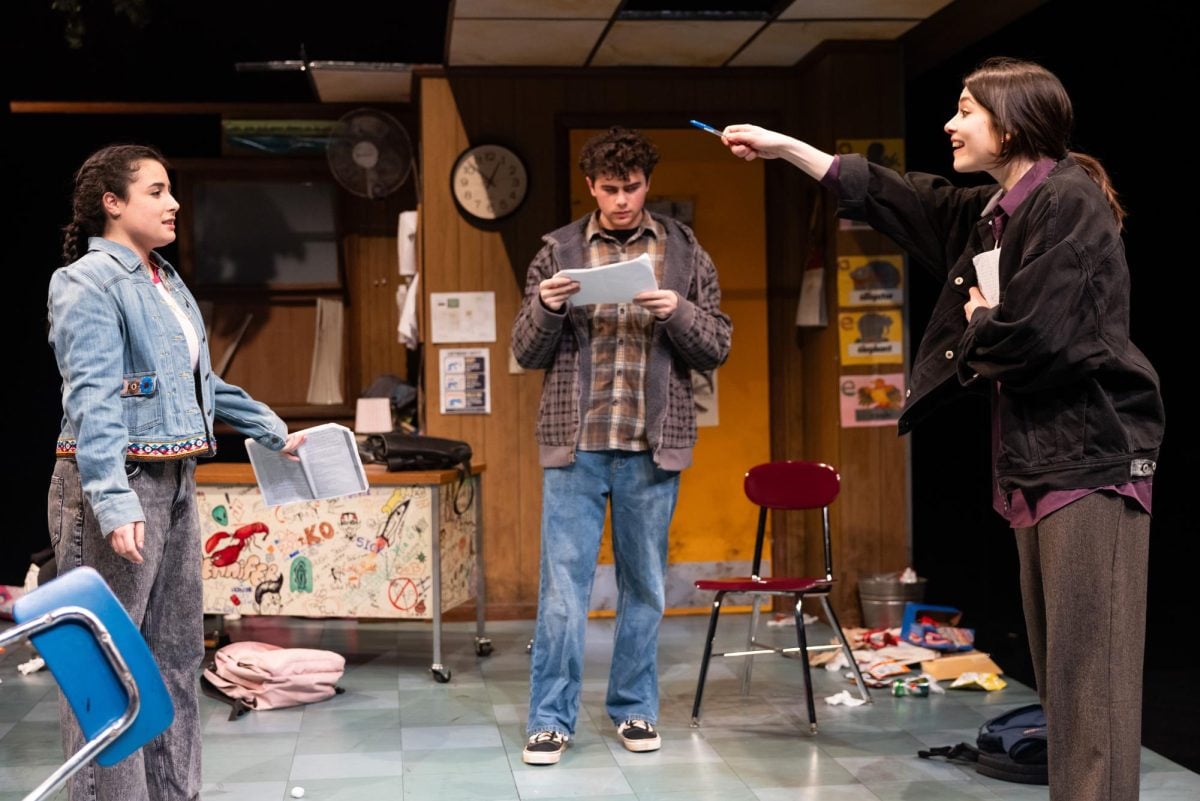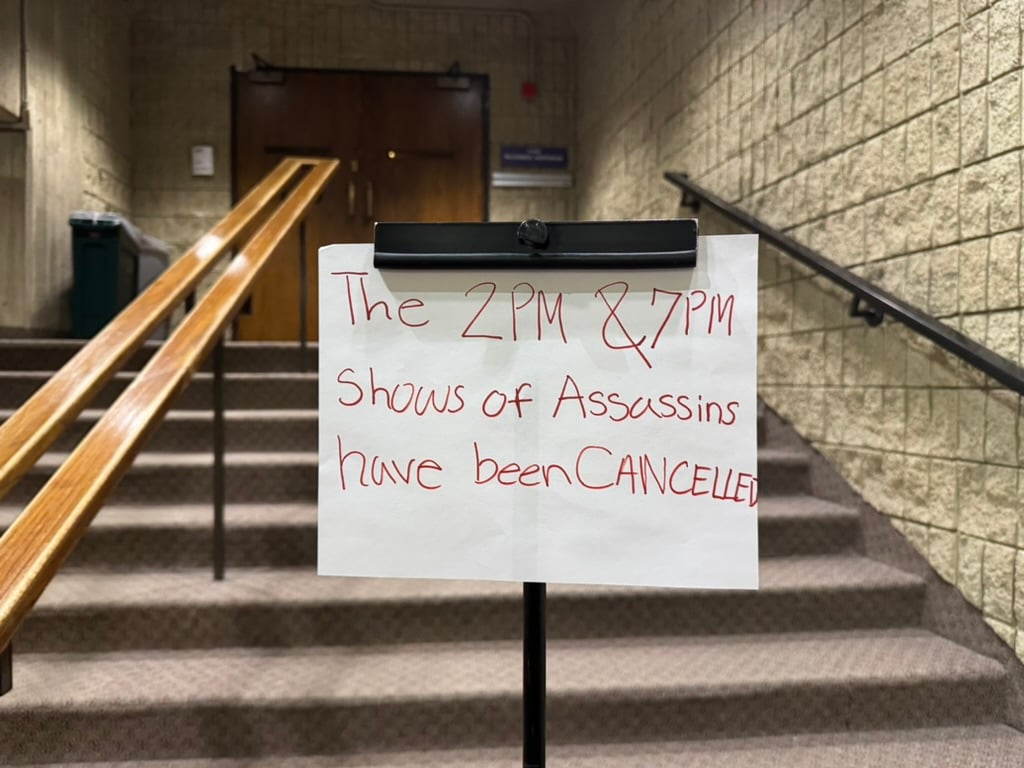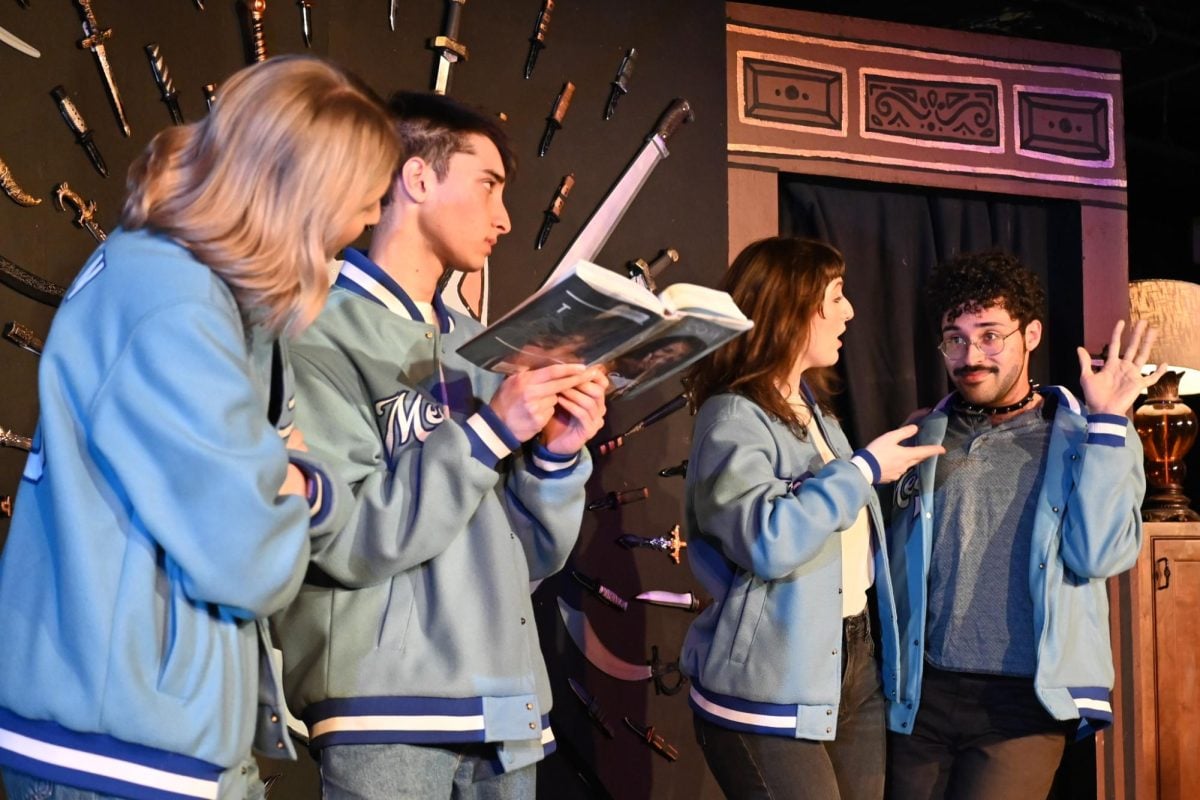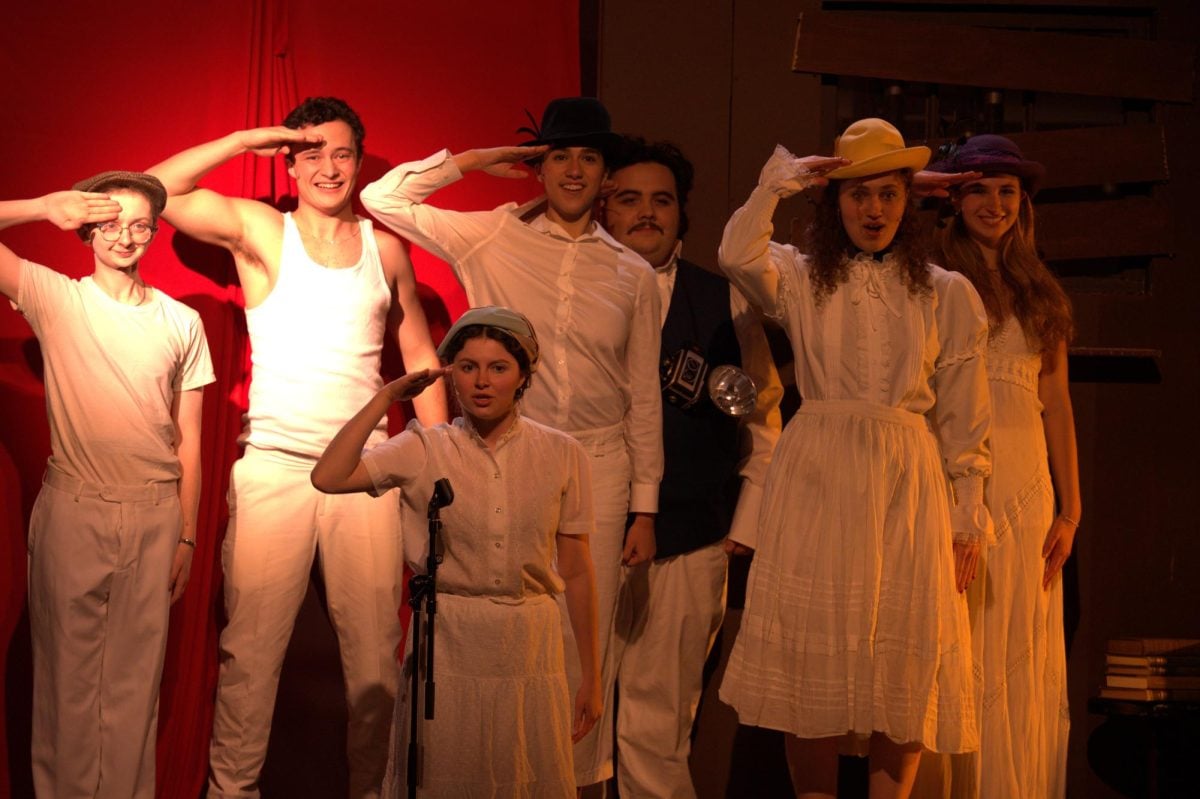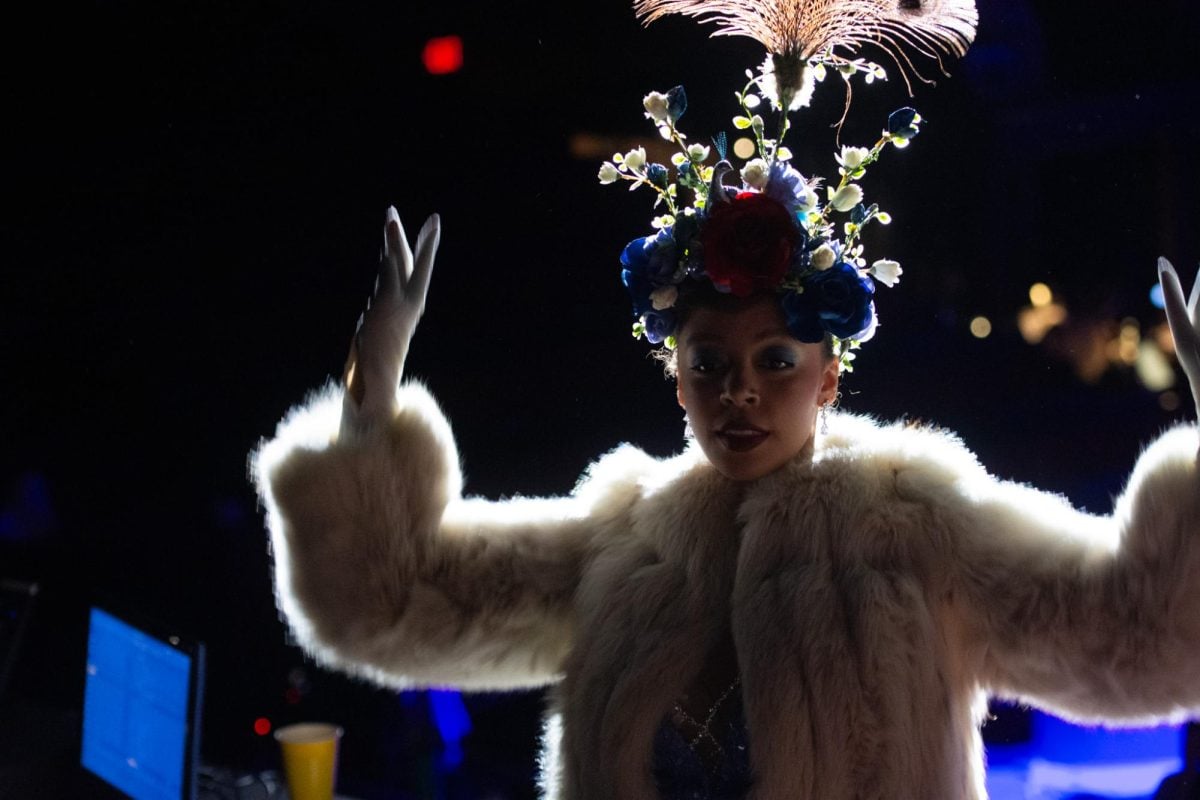Inspired by Korean shamanism, third-year directing graduate student Tae-Heum Yeon’s version of “Antigone,” offers audiences a unique perspective of the classic Greek tragedy at the Virginia Wadsworth Wirtz Center. The show opened Friday and will run until Nov. 24.
“Antigone” is the third and final play of Greek playwright Sophocles’ Theban plays. The story follows a princess, who buries her brother Polyneikis against the orders of Kreon, the king of Thebes. Previously, Kreon had declared Polyneikis a traitor and forbade anyone to bury the prince. Due to Antigone’s defiance, Kreon sentences her to death.
The play began and ended with a traditional funeral processional march song called “Sang Yeo So Ri.” The characters were dressed in garments inspired by traditional Korean clothing and styles.
“(Yeon) was really excited about blending this Korean influence and atmosphere with each member of the cast’s culture, making it a commentary on grief and how countries deal with leaders who are corrupt and don’t listen to the cultural sensitivities of its people,” said Communication sophomore Bryson Shaub, who plays Haimon — Kreon’s son and Antigone’s fiance.
Because Canadian poet Anne Carson’s translation of “Antigone” lacks almost any punctuation, Communication senior Augustus Glick, who plays Kreon, said Yeon worked with the cast to time the tempo of every phrasing.
Glick said Yeon also helped him add depth to his interpretation of Kreon. Initially, Glick said he only understood Kreon as an angry king and “misogynistic” character who lashes out at Antigone in pure rage. However, Glick said Yeon led him to find vulnerability through Kreon’s sense of being threatened by Antigone.
“Antigone is saying you should act this way, and Kreon is fighting that way,” Glick said. “There’s a certain suggestion of acceptance (while) being steadfast in your emotional beliefs, as opposed to some kind of constructed belief.”
Yeon said he chose to produce “Antigone” after learning about the deadly crowd-crushing in Seoul during Halloween festivities in 2022.
In the days that followed the disaster, the South Korean government said it was not its responsibility to maintain public safety on the streets of that night because the festivities had not been formally organized.
“What really drew me into ‘Antigone’ was the reaction of (the) Korean government, where it seems they were more interested in political interest or political propaganda, rather than really grieving or mourning,” Yeon said.
In traditional Korean shamanism, Yeon said villages have a hereditary shaman that people believe has superpowers and, therefore, has the duty to serve the village even if they don’t want to. If the shaman refuses, it is believed that the shaman will face retribution, he said.
Yeon said he connected these shamans to the royal family of Thebes that have been cursed since the reign of Oedipus in Sophocles’ plays.
“They are not just normal people, but they’re a royal family,” Yeon said. “(They) have this super burden. (This) cursed life of duty is aligned with (the) concept of a hereditary shaman.”
Communication senior Arwen-Vira Marsh, who plays Antigone, said she had some initial trepidation with the production because she has no Asian background.
However, Marsh said Yeon told her to understand this production as a learning opportunity and cultural exchange.
“Tae said ‘I am not asking you guys to put on any sort of persona,’” Marsh said. “Every single costume piece that we wore, every single movement of the hand, every single word that was said that was being filtered in through this Korean shamanistic point of view, it felt like it was very intentional and purposeful and appreciative of this culture.”
The set featured knotted clothes hung from the ceiling — inspired by traditional Korean rituals. Since the knots are left in the fabric onstage, each cloth represents characters in the play who have not been properly mourned.
The back of the set had a cracked stone wall. As characters died throughout the play, they walked into the crack.
“I think it represents the location of (Antigone’s) homecoming. In Black culture, we have this idea of when you pass on, you’re not dead, you’re going back home,” Marsh said. “There is no more fear there because she’s being reunited with her family, who have also passed away.”
Email: ninethkanieskikoso2027@u.northwestern.edu
Related Stories:
— Wirtz Center’s retelling of ‘The Tempest’ bends boundaries, centers justice and love
— Wirtz Center’s ‘Working’ features stories of Evanston workers in documentary musical
— Red Theater’s ‘Hamlet’ embarks on poignant emotional journey

